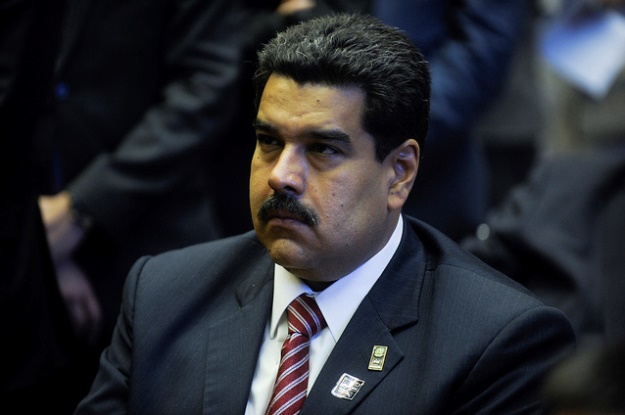Throughout Latin America, there is talk about presidential interruptions, again. In the last seven years, four presidents have left office prematurely – Manuel Zelaya in Honduras, Fernando Lugo in Paraguay, Otto Pérez Molina in Guatemala, and now Dilma Rousseff in Brazil. Many analysts think that Venezuela’s President Nicolás Maduro is next. However, there is good reason to think that Maduro might survive.
At first sight, it appears that Venezuela has all the right conditions for a presidential interruption: dismal presidential approval ratings (low 20s), an intense economic crash (one of the world’s worst), indecent levels of corruption, and widespread street protests, which are picking up this year. Maduro has even lost the one shield that, according to political scientist Aníbal Pérez-Liñán, a professor at the University of Pittsburgh who has studied presidential interruptions in Latin America, can save presidents: control over the legislature.
But there are two major differences between Venezuela and the most recent cases of presidential interruptions. First, there is no possibility of impeachment. We can thank Hugo Chávez for that. Chávez’s first step in office was to redo Venezuela’s constitution. One of the provisions he jettisoned was impeachment. This was part of a major effort by Chávez to weaken the power of the legislature.
Instead of impeachment, Chávez created the possibility of a recall referendum. Initially, Venezuelans thought this new option would be a better mechanism to determine whether a president should step down prematurely; it was seen as more connected to the people rather than party elites, and thus, more democratic.
Today, however, Venezuelans know better. They have discovered that, in Venezuela at least, the process of removing the president through a recall referendum is constitutionally feasible but onerous in practice. Venezuela’s electoral body, the CNE, has essentially appropriated the regulatory environment governing recall referenda. Since the early 2000s, this body has been led by hardcore chavistas. In 2003, they delayed the process of a recall referendum long enough to allow Chávez to sway the electorate. Today, the CNE is even more partial, and it is adding even more regulations to once again delay the process for as long as possible.
But it’s not just the CNE that is helping the government. The judiciary is now an even more decisive ally. Pérez-Liñán talked about the legislative shield, but the cases of Venezuela, Honduras, Paraguay, Guatemala and Brazil force us to talk about a different type of shield: the judicial shield. Presidents in trouble who manage to keep the courts on their side have a higher chance of surviving in office.
In the cases in which interruption did occur, presidents lost their judicial shield shortly before losing power. The final blow against President Zelaya, for instance, occurred when the court declared his behavior unconstitutional. The result was a court-ordered, parliament-supported coup. In Paraguay, President Lugo’s impeachment in 2012 was endorsed by the Supreme Court. In Guatemala, President Otto Pérez Molina faced accusations of corruption from an international organization and the local attorney general’s office. The president tried to use the courts to stop these allegations and investigations, but the courts decided not to side with the president. Pérez Molina was forced to resign close to the end of his term. And in Brazil, the court amazingly declared that the charges against President Dilma Rousseff merited an impeachment trial. This green light paved the way for the Congress’ historical decision to impeach her.
Maduro, in contrast, has retained his judicial shield. If anything, this shield has become even stronger. One of Chavismo’s most important institutional changes since 2004 has been the co-optation of the justice system: The court was packed with hardcore chavistas, and during the Chávez era not a single ruling by the Supreme Tribunal ever challenged the president.
In the Maduro era, this shield has been reinforced to an extraordinary degree. Ever since the opposition won the 2015 legislative election, obtaining what should have been a decisive two-thirds majority, Maduro has turned his judicial shield into a machine that torpedoes any initiative he deems adverse or undesirable. Every initiative by the Congress has been deemed unconstitutional by the courts. Not even the right to question ministers has been allowed to stand. The Congress has been disarmed.
By repurposing his judicial shield, Maduro is therefore carrying out a new type of self-coup. The notion of self-coup was popularized in 1992 when Fujimori abolished congress. Maduro is also disabling Congress, not by abolishing it, but by having judges render it irrelevant.
Maduro has not been the only president saved by a judicial shield. In 2015, President Juan Orlando Hernández of Honduras was involved in a corruption scandal involving approximately $335 million from the Social Security system. Hernández survived this presidential crisis, unlike Pérez Molina in Guatemala, because he had the necessary judicial shield. Like Chávez and Maduro, he has packed the court with his followers.
The recent cases of presidential interruptions – both those that occurred and those that have come close to occurring – require us to update our understanding of the forces that determine premature ends to presidential terms in democracies. The typical variables – social discontent, macroeconomic collapse, policy disarray and loss of legislative shield – still matter a great deal. But a judicial shield is also vital. Presidents can be despised by millions. But as long as presidents remain popular among a handful of judges, they can survive in office for a bit longer.
—
Corrales is Dwight W. Morrow Professor of Political Science at Amherst College, Amherst, MA, and a member of Americas Quarterly Editorial Board. Recinos is a member of the Class of 2016 at Amherst College.








